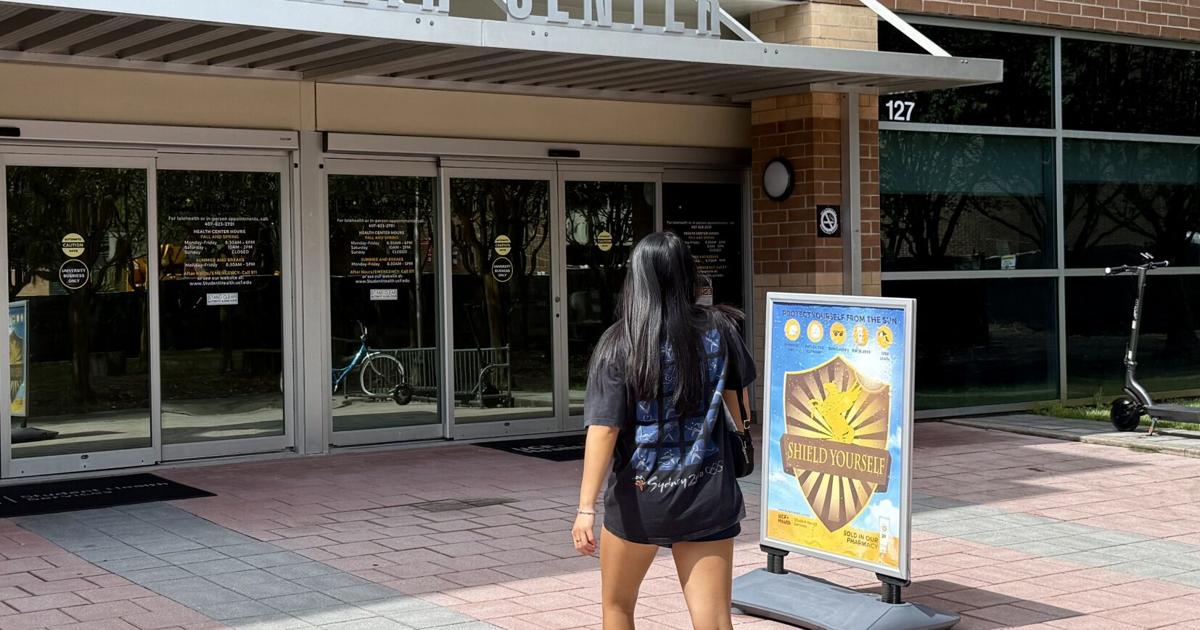A UCF student enters the Health Center on campus on Thursday. The UCF Health Center provides students all the required and recommended vaccinations, having prices comparable to local health clinics.
Erika Ryan
The Centers for Disease Control and Prevention announced on Monday that they are no longer recommending the COVID-19 vaccination for all Americans, creating a major change in federal health policy.
The CDC’s new stance emphasizes the policy change as a “individual-based decision-making,” the release states, establishing that “the clinical decision to vaccinate should be based on patient characteristics that unlike age are difficult to incorporate in recommendations.”
“Informed consent is back,” Deputy Secretary of Health and Human Services Jim O’Neill stated in the release. “CDC’s 2022 blanket recommendation for perpetual COVID-19 boosters deterred health care providers from talking about the risks and benefits of vaccination for the individual patient or parent. That changes today.”
This decision comes amid ongoing discussions about vaccine access and the Secretary of Health and Human Services Robert F. Kennedy’s growing influence on national health agencies.
Claudia Corton, a nurse at Jackson Memorial Hospital in Miami, shared her thoughts on the vaccinations affecting students in universities.
“This shift makes it harder to maintain consistent and coordinated care across the student population,” Corton said. “It could also increase the risk of illness outbreaks and place a heavier workload on campus health services. To educate students, universities and health care providers can offer non-biased, evidence-based information from peer-reviewed journals to help students make informed choices.”
The CDC’s guidance does not restrict vaccine availability. Instead, the new guideline calls for patients to consult with their health care providers about the risks and benefits of the vaccination, especially those at higher risk of severe illnesses.
This policy change may lead UCF students to question how individual health decisions can affect the community well-being on campus.
Ariana Armstrong, a senior nursing major, said she believes most UCF students generally respond to public health guidance by following it closely, especially when there’s a clear, unified message.
“However, with the CDC now framing COVID-19 vaccination as more of a personal choice, I believe this shift could lead to fewer students choosing to get vaccinated,” Armstrong said. “When something is framed as optional, it can create a sense that it’s less necessary or urgent.”
With the policy changing to patients having a personal choice, Pedro Lucas, a nurse at Memorial Regional Hospital in Hollywood, said that university campuses need to look into their students’ medical history checks.
“This shift makes it essential for campus health services to conduct thorough medical history checks,” Lucas said. “Providers now have to consider a wider range of personal choices that may affect each student’s plan of care, adding complexity to maintaining consistent health practices.”
Now that patients can make their own vaccination decisions, institutions may need to rethink their approach for preventive measures.
Madelyn Kirby, a senior nursing student at NSU, shared her thoughts on the policy change for the COVID-19 vaccination.
“I think since everyone is different and is valued to choose, it will definitely affect the future of vaccines and outbreaks,” Kirby said. “There should for sure be mandatory vaccines for certain outbreaks but before it is released to the public and especially mandatory, they should know more future effects this vaccine will have on the population.”
As the CDC moves its vaccination policy into a new phase of pandemic recovery, this decision pinpoints how Americans approach public health with having fewer mandates and greater personal choice.
On the UCF campus, the UCF Health Center continues to provide students all the required and recommended vaccinations, according to its website.

